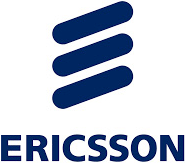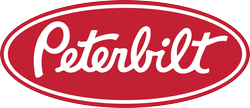FAQ: Survey Questions
Does NBRI assist with question development?
Absolutely! You may use our professional survey content or work directly with an NBRI Organizational Psychologist (Ph.D. level) to review the goals and objectives for your study and determine the most appropriate questions for your survey. Learn more about survey design.
How do I know what type of survey questions to use?
There are many types of survey questions such as ranking questions, open-ended questions, and scaled questions. How you intend to use the data will determine the type of question used. For example, if your goal is to gauge satisfaction or engagement, you may choose to use a scaled question. This type of question asks respondents to identify their level of agreement or satisfaction and allows you to benchmark results against similar organizations within your industry.
If you are asking a demographic question, you will want to use a multiple choice question with single choice. You may use check boxes allowing the respondent to select multiple options if applicable. Yes/no questions may be used to pre-screen or qualify a respondent. They are also great when employing skip-logic and presenting different questions to different people based upon previous responses.
Open-ended questions allow you to capture free form text and can be helpful when asking respondents to explain a rating or providing a space for general feedback not otherwise captured in the survey. Ultimately, the type of question used will depend upon how you intend to use the response.
I want to conduct a job satisfaction survey. What kind of questions should I ask?
Job Satisfaction can be characterized as having five main components according to the Job Characteristics mode: Skill variety, or the extent to which a job engages novel skills, Task Identity, which is the extent to which workers are able to complete a visible and distinct piece of work, Task Significance, which is the extent to which people see how their work fits into the bigger organizational picture, Autonomy, which is the freedom and independence to plan and structure work, and Feedback, which is the degree to which a worker receives communication about their performance on the job.
A Job Satisfaction Survey should have questions based on all of these elements; however, it is advisable to push the assessment a bit further. By focusing on Employee Engagement, which is a measure of how connected and invested individuals are to the organization, and whether they are willing to put in the extra effort and go above and beyond what is expected of them.
Ideally, we can leverage a Job Satisfaction Survey to get a clearer picture of how committed employees are—not just to their jobs—but to the organization itself. By asking about affective states and level of commitment to the organization itself, and focusing a bit more heavily on Person-Organization fit, we are able to understand how deeply attached employees are to the organization, and whether they will continually act in the best interest of the organization. Job Satisfaction is a big part of the picture, but it is not the whole picture.
I'm trying to put together a customer survey. What kinds of customer survey questions should I use?
Customer surveys should evaluate all points of contact between the customer and the organization. It should also evaluate several components of the product/service experience. Are products a good value, were they delivered rapidly? How about customer service representatives? Were they friendly? Knowledgeable? Every element of customer service should be assessed, with one caveat: the company must be in a position to change or address any customer concerns that emerge in the survey.
One of the most important things to consider for customer survey questions is that these questions are crisply and cleanly written. This means that language should be succinct and clear. Since the customer is doing us a favor by answering our survey, we need to be certain the entire process is as painless for them as possible. We can do this by ensuring the questionnaire is not needlessly wordy or convoluted. In addition to forming a very crisp and concise survey, we should ensure it is administered in a way that is as convenient for the respondent as possible.
What are normative questions?
Normative questions are professional standardized survey questions written by NBRI organizational psychologists. Recognized as the ‘normal’ questions to ask in survey research, these questions have been tested and validated. Each survey question is a scientific research instrument in its own right.
What if I already have my own survey questions?
Your survey questions can be loaded to our platform or you can use our professional survey content. NBRI can also review and map your existing survey questions to normative survey questions.
What is the recommended methodology to determine survey questions?
The first and most important step in any research study is the development of the Question Database. To collect good data, you must have a good set of survey questions. If you don’t have a good set of questions, there is no doubt that the phrase ‘garbage in, garbage out’ was coined for such an application!
The process of selecting survey questions can take several forms, as you may have previous questions that you would like to continue using to preserve historical data. You may have never surveyed before and are beginning from scratch, or you may have a particular focus for your survey, such as corporate culture.
The question database should include questions that are prescribed by best practices in organizational development. For employee surveys, management style, job satisfaction, culture, fairness, and engagement questions are recommended. For customer surveys, intent to return, overall customer satisfaction, communication, responsiveness, and products and services questions are recommended. In addition to being best practices, some of these questions collect data needed to conduct inferential statistical analyses that provide clients with the shortest route to the most important improvements for the financial success of their organization.
























 By submitting this form you agree to our
By submitting this form you agree to our